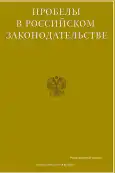Training Employees of the Internal Affairs Bodies for Preliminary Actions when Protecting Against an Attack by an Offender
- Authors: Nastuev E.B.1
-
Affiliations:
- North Caucasus Institute for Advanced Studies (branch) of the Krasnodar University of the Ministry of Internal Affairs of Russia
- Issue: Vol 15, No 5 (2022)
- Pages: 27-31
- Section: Articles
- URL: https://bakhtiniada.ru/2072-3164/article/view/147583
- ID: 147583
Cite item
Abstract
The article deals with the problems of training employees of the internal affairs bodies for pre-emptive actions when protecting against the blows of offenders. Improving the training of employees of the internal affairs bodies for preventive actions when protecting against the blows of offenders is an extremely relevant issue, since in modern society the number of employees of the internal affairs bodies who have been injured in the course of performing their professional duties is increasing every year. The reason for this negative trend is precisely the imperfection of the skills of defending against blows of offenders. Reducing this indicator is one of the priorities of the internal affairs bodies. Increased attention should be paid to the issues of physical training and education of employees of internal affairs bodies. The formation and development of the skills of police officers takes place in the process of training activities, it is necessary to develop and implement new methods of teaching martial arts among police officers. The objectives of the study are to analyze modern problems in the field of physical training of police officers, in terms of providing resistance to offenders. It is necessary to identify problems that negatively affect the quality of training of police officers and identify possible ways to increase the level of training of employees of internal affairs bodies for preventive actions when protecting against attacks by offenders. Conclusions: as a result of the theoretical study, it can be stated that it is the high level of physical fitness that determines the level of training of employees of the internal affairs bodies for preventive actions when protecting against the blows of offenders. The development and implementation of new methods, tools of physical training will significantly increase the efficiency of the internal affairs bodies. A high level of mastery of combat techniques will increase the level of safety of employees in the performance of their professional duties.
Full Text
##article.viewOnOriginalSite##About the authors
Eduard Borisovich Nastuev
North Caucasus Institute for Advanced Studies (branch) of the Krasnodar University of the Ministry of Internal Affairs of Russia
Email: nastuy211@mail.ru
Police Lieutenant Colonel, Senior Lecturer of the Department of Physical Training Nalchik, Russia
References
- Federal Law "On the Police" dated February 7, 2011 No. 3-FZ (last edition).
- Order of the Ministry of Internal Affairs of Russia dated 07/01/2017 n 450 (as amended on 07/27/2020) on the approval of the manual on the organization of physical training in the internal affairs bodies of the Russian Federation.
- Broev A.Kh. Organization and methods of training employees of the Russian police department on impacts and protective actions in the process of their physical training // Scientific Review. Pedagogical Sciences. - 2019. - No. 6. - P. 22-26.
- Guralev, V.M., Evtushenko, A.A. On the importance of shock and protective equipment for employees of the internal affairs bodies // Actual problems of combating crime: issues of theory and practice: materials of the XXI international scientific and practical conference (April 5-6, 2018): in 2 hours / ed. N.N. Tsukanov; Siberian Institute of the Ministry of Internal Affairs of Russia. - Krasnoyarsk: SibJuI of the Ministry of Internal Affairs of Russia, 2018. - Part 2. P. 255.
- Medvedev, I.V. Improving the methodology of fighting techniques as a criterion for the professional competence of students of educational organizations of the Ministry of Internal Affairs of Russia / I.V. Medvedev, V.V. Semyonov // Problems of modern pedagogical education, Collection of scientific papers. - No. 54 (6). - Yalta: RIO GPA, 2017. - S. 187-193.
- Osipov A.Yu., Guralev V.M., Evtushenko A.A. Improving the methodological base for teaching combat techniques of fighting employees of the Ministry of Internal Affairs of Russia // Problems of modern pedagogical education. 2017. No. 54-7. pp. 76-83.
Supplementary files








